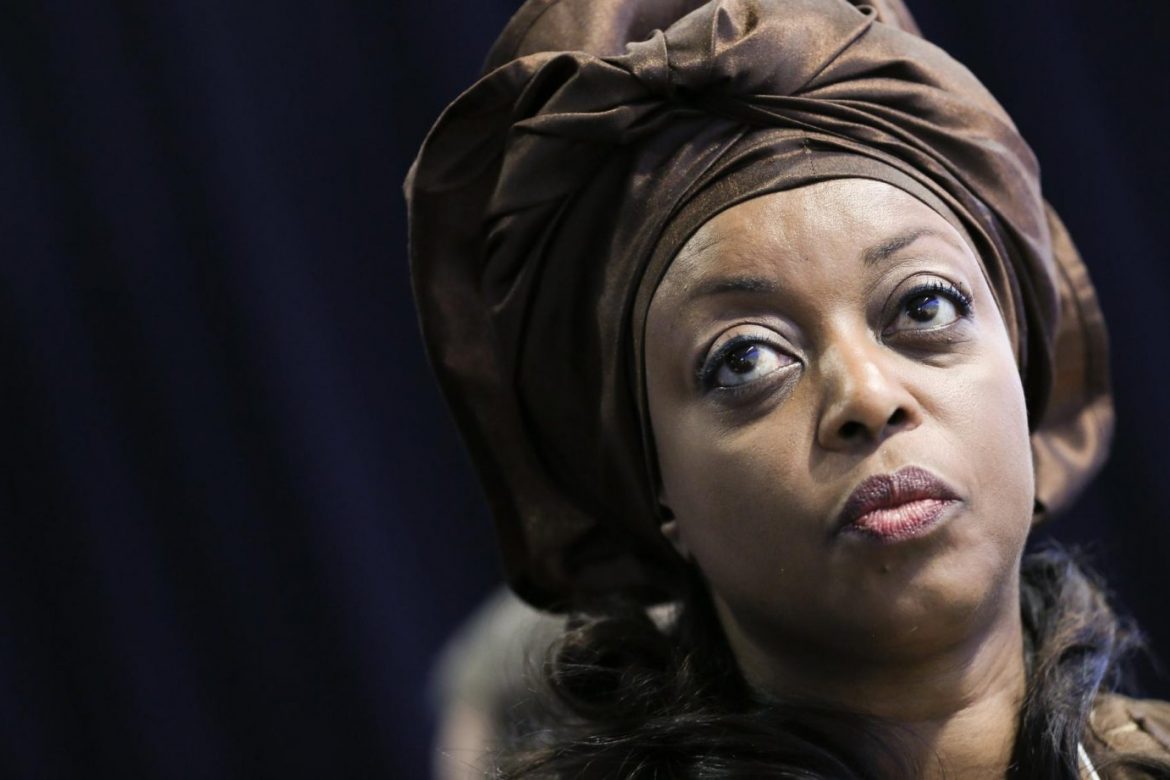This material belongs to: Ventures Africa.
While Nigerians’ debated with protests whether their president, Muhammadu Buhari, should “return or resign”, the country’s foremost anti-corruption agency, EFCC, managed to squeeze out another high profile corruption announcement. The suspect was very usual. EFCC announced on Wednesday, through a letter to Premium Times, that it had found and recovered “illegally acquired cash and properties” worth a total of $ 650 million, all belonging to beleaguered former Nigerian Petroleum Minister, Diezani Alison-Madueke.
The EFCC, in its statement, claims it discovered “boxes of gold, silver and diamond jewellery, worth several million pounds” at the residence of the former oil minister in Nigeria. In addition, the agency also claims that it had re-possessed dozens of buildings across the nation all belonging to the former petroleum minister. In its letter to Premium Times, the agency clearly stated it had received legal backing from the Nigerian judiciary to reclaim the said properties. This latest discovery, called “the tip of the iceberg” by EFCC’s boss Ibrahim Magu, comes barely a month after the former oil minister was charged with money laundering of about $ 144 million in the United States, in connection with a bribery scandal, relating to illegal oil contracts granted through shell companies. Diezani was also arrested in the London in October of 2015 over bribery and money laundering in connection with that year’s presidential elections in Nigeria. She was later released on bail and has remained in London ever since then.
A partisan group yesterday, the Buhari Media Support Group (BMSG) proclaimed that the stolen funds discovered in Madueke’s possession along with her properties worth are enough to fund infrastructure development in the country, a key promise the current administration made before it came into power. EFCC boss Ibrahim Magu also claimed the loot was the tip of the iceberg, and that his agency will discover more, “recover every loot linked to her” and “get other people she’s work[ed] with”. But the media and the Nigerian corruption agency still seem to be losing sight of the goal, which is to end corruption, not to hound the former oil-minister who hasn’t been found guilty in court yet.
Nigeria still remains ranked at 136 out of 176 countries according to Transparency International’s Global Index of Corruption Perception. Before Diezani, there was General Sanni Abacha, a man who before present evidence was thought to be the most corrupt Nigerian leader ever. Then there was James Ibori, Diepriye Alamieyeseigha; two oil-rich South-South Nigerian leaders who robbed their people blind but are still seen as heroes in some quarters. Then to a lesser extent, there are the ministers and former presidents who in common parlance are referred to as “the cabal.” Madueke’s media trial is the poster child, the one that seems to show that President Buhari is really fighting corruption. With the ease through which EFCC has been able to find evidence of her corrupt activities as head of NNPC, there are indications there was some degree of diligence in their investigations, and the agency could secure a conviction this time.
And that is probably why EFCC’s investigative job is bigger than grand gestures of unveiling corrupt criminals; it should create a template for checking the systems in the NNPC and in the public service that massively aid corruption. There is a general perception that strong leadership in Nigeria, and probably in Africa, is better than working political institutions that have inbuilt “firewall” systems guarding against the influence of political elites and parties. That is wrong. A leader is only as strong as the power the political institutions present in his government give him.
Agencies like the EFCC, through its investigations, should have reports to show how these government monies move from within the government coffers and public institutions into the hands of private individuals with relative ease, without raising flags. National corporations like NNPC, CBN, etc. will need to be torn down, and rebuilt from the scratch, or things will remain the same and people like Diezani will always find a way to cash out.
With the help of popular youth socialist movements across the nation and their agitations on the political system, the power of social media, and a well-informed populace interested in political participation, Nigeria’s anti-corruption agencies could put a stop to corruption from its roots. Media trials and sensationalism only gloss over the facts regarding corruption.
We mourn, we get angry, we grieve, basically pass through all the 7 stages of grief and promptly move on until the next “we’ve discovered corrupt persons” news is announced in the media, sometimes to cover up another “we’ve discovered corrupt persons” news involving someone close to the currently ruling elite. If EFCC seeks approval, it might not get it. If it seeks to lead the nation out of corruption, it is going the wrong way. “Pioneering is never done in front of cheer leaders roaring on a roaring grandstand of popular approval.”
 info@anticorr.media
info@anticorr.media

